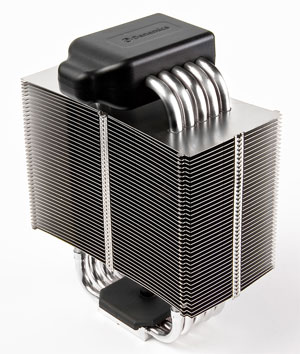Cooler Than Water, The Liquid Metal Heat Sink
In addition, Danamics highlights that their technology utilizes an electromagnetic pump for circulating the liquid metal (makes sense) and this also has the added benefits of having no moving parts, emitting zero noise and a claimed unlimited MTBF (mean-time between failure). Danamics also claims the LM10 has the lowest thermal resistance of any air-cooler on the market currently. They also claim the LM10 exceeds most water coolers on the market, all in a single, sealed unit without external reservoirs or additional components. Finally, the power draw of the LM10 is noted to be less than 1W.
On a side note, your first thought might be that the liquid metal substance used in this cooler is Mercury. However, we'd suggest it's likely an amorphous liquid metal alloy like Vitreloy or similar. We've reached out to Danamics and will advise on this if further information is available.
So let's add this up again. Low noise, low power consumption, cools better than water, stand-alone unit -- only one question remains and one task is at hand. How much does it cost and when will the first sample arrive at the HotHardware Labs? Stay tuned, we'll try to answer those questions and whether or not the LM10 can live up to its claims, in the weeks ahead. What do you think? Does this new technology have promise?



